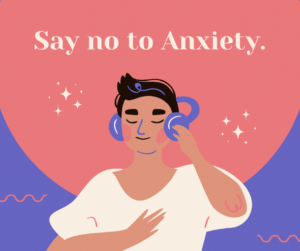Unlocking Inner Peace and Calm
Introduction
In today’s fast-paced and demanding world, anxiety has become increasingly prevalent, affecting millions of individuals worldwide. While there are various treatment options available, hypnotherapy has emerged as a promising approach for managing anxiety effectively. In this blog post, we will explore the concept of hypnotherapy and its potential benefits in alleviating anxiety. Let’s dive in!
Understanding Anxiety
Anxiety is a natural response to stress, but when it becomes persistent and overwhelming, it can significantly impact an individual’s well-being. Symptoms of anxiety may include excessive worrying, restlessness, irritability, sleep disturbances, and difficulty concentrating. Left unmanaged, anxiety can interfere with daily life, relationships, and overall happiness.
What is Hypnotherapy?
Hypnotherapy is a therapeutic technique that utilizes hypnosis to induce a state of deep relaxation and heightened focus. Contrary to popular belief, hypnosis does not involve mind control or manipulation. Instead, it aims to tap into the subconscious mind to facilitate positive change.
How Hypnotherapy Can Help with Anxiety
- Addressing Underlying Causes: Anxiety often stems from deep-rooted emotions, past traumas, or negative thought patterns. Hypnotherapy can help identify and address these underlying causes by accessing the subconscious mind. By exploring and reframing these issues, individuals can experience profound emotional healing and relief from anxiety symptoms.
- Relaxation and Stress Reduction: One of the key elements of hypnotherapy is inducing a state of deep relaxation. This relaxation response helps reduce stress levels, calm the nervous system, and alleviate anxiety symptoms. Through guided imagery, deep breathing exercises, and progressive muscle relaxation, hypnotherapy promotes a sense of tranquility and well-being.
- Cognitive Restructuring: Hypnotherapy enables individuals to challenge and reframe negative thought patterns associated with anxiety. By accessing the subconscious mind, it becomes possible to replace anxious thoughts with positive and empowering beliefs. This cognitive restructuring process helps break the cycle of anxious thinking and promotes a more balanced and optimistic mindset.
- Building Coping Mechanisms: Hypnotherapy equips individuals with effective coping strategies to manage anxiety in their daily lives. These techniques may include self-hypnosis, visualization, and anchoring techniques, which can be employed whenever anxiety arises. By practicing these techniques regularly, individuals can gain a sense of control over their anxiety and improve their overall well-being.
- Complementary Approach: Hypnotherapy can be used alongside other traditional therapies or treatment modalities for anxiety, such as cognitive-behavioral therapy (CBT) or medication. It can enhance the effectiveness of these approaches by targeting the subconscious mind and facilitating lasting change.
Conclusion
Hypnotherapy has emerged as a valuable tool for managing anxiety, offering a holistic and empowering approach to emotional well-being. By tapping into the subconscious mind, hypnotherapy helps individuals address underlying causes, promote relaxation, reframe negative thoughts, and build effective coping mechanisms. If you’re struggling with anxiety, consider exploring hypnotherapy as a complementary approach to support your journey towards inner peace and calm.
Please note that hypnotherapy is a personal experience, and it is crucial to seek guidance from a qualified and licensed hypnotherapist who specializes in anxiety. Always consult with a healthcare professional for a comprehensive evaluation of your anxiety symptoms and appropriate treatment options.
Remember, your well-being matters, and there is hope for a brighter and more peaceful future.





